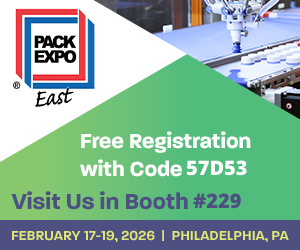

814-838-7721 | SQF Certified | ISO Certified
For over 50 years, Munot Plastics has been a trusted partner for businesses needing precision packaging solutions for their operations. Our expertise in plastic thermoform tooling and plastic thermoform manufacturing allows us to support a broad range of industries, including medical, food, electronics, and consumer goods.
If you need thermoformed trays, clamshells, or blister packs, we engineer custom molds that offer clarity, protection, and performance.
At Munot Plastics, thermoform tooling manufacturing is more than a service, it’s a foundational part of how we ensure product integrity from design to delivery. We specialize in both production molds and prototype mold builds, offering tailored solutions to support your full packaging lifecycle. Our in-house capabilities include CNC machining, plug-assist mold design, and mold cavity optimization for material control.
Our tooling processes prioritize:
Our vacuum forming services are ideal for creating protective packaging for everything from medical packaging tooling to retail blister packs. This method uses vacuum pressure forming to draw heated plastic into your desired shape with tight conformity.
We also utilize plug-assist thermoforming to improve definition, especially for deep cavities and parts requiring uniform thickness. Plug geometry and forming pressure are tuned to ensure stable wall distribution, maximizing part quality and production efficiency.
Munot Plastics manufactures CNC machined molds using precision-controlled equipment and software. This approach ensures consistency across your entire production run, whether you're producing blister packaging tooling, clamshell tooling, or thermoformed packaging molds. Our experience in mold making for thermoforming supports both rapid development and scalable production.
Learn more about our Thermoform Tooling Design Services for full design-to-delivery support.
Every mold we produce incorporates industry-appropriate tooling materials to meet thermal and mechanical demands. From prototype thermoform tooling to full-scale production molds, we account for factors like draft angles, plastic sheet thickness, and forming temperature to optimize performance.
Surface finishes range from matte to high-gloss, including A1 diamond polish for crystal-clear plastic packaging mold manufacturing. This is especially valuable for clear plastic packaging where visibility and visual appeal drive product success.
Discover the full range of materials we work with, including PET, RPET, PVC, HIPS, HDPE, and polycarbonate.
Munot Plastics serves multiple sectors with solutions engineered for specific product requirements. Our thermoforming mold design supports:
Explore the industries we serve to see how we match solutions to regulatory and performance needs.
We deliver:
From custom thermoform tooling to long-term tooling support, our solutions provide value across your packaging lifecycle.
For design insights, read our expert blogs:
Whether you need thermoform tooling, plug-assist design support, or help developing a retail packaging system, we’re here to help. Contact us to get started with a custom tooling consultation.
Tooling is typically machined from aluminum or composite materials, depending on the application. The packaging itself may be formed from plastics such as PET, RPET, PVC, HIPS, HDPE, or polycarbonate, chosen based on clarity, barrier properties, and forming characteristics. Material selection directly impacts forming temperature, mold cavity geometry, and surface finish quality.
Vacuum forming relies solely on suction to pull heated plastic over a mold, while plug-assist thermoforming uses a mechanical plug to pre-stretch the sheet before vacuum is applied. Plug-assist methods improve material distribution and wall uniformity, especially in deep-draw or high-clarity applications like clamshell packaging and medical device trays.
CNC machining allows for highly repeatable and precise mold fabrication, especially for features like trim dies, plug geometry, and complex draft angles. Tolerances can be tightly controlled, which is critical for sealing, fit, and form of the final thermoformed packaging.
Prototype thermoform tooling is typically used for short-run testing or market validation and may be made from softer or lower-cost materials. Production molds are built from durable materials, engineered for repeatability, longevity, and consistent trim tolerances over high volumes.
Molds can be finished in matte, textured, or high-gloss levels depending on the desired appearance and functional requirements. For applications requiring maximum clarity—such as retail blister packs or medical clamshells—A1 diamond polish is often applied to achieve a smooth, glass-like surface and improve release characteristics.
The quality of thermoform tooling plays a major role in how well the final packaging performs. Elements like how the plastic is heated, the shape of the plug assist, vent placement, and the angle of the mold all influence how the material forms. When these factors aren’t properly engineered, the result can be inconsistent thickness, unclear edges, sealing issues, or even warped parts.
Yes. Thermoform tooling used in the production of food-grade or medical packaging must meet regulatory and process control standards. Munot Plastics operates in an SQF-certified environment and displays ISO 9001 certification, both of which support traceability and consistent quality in packaging production.
Lead times depend on the complexity of the mold, type of material used, and whether prototype development is needed. Basic tools may be completed in a few weeks, while multi-cavity or high-clarity molds requiring CNC detail and polishing may take longer. Early engagement in tooling design helps reduce turnaround times.
Thermoform tooling is used to create a wide range of packaging types, including blister packs, clamshells, inserts, and trays. These formats are commonly used across industries like food, medical, electronics, and consumer goods, offering protection, visibility, and custom fit for the end product.